Have you ever found yourself puzzled by a discrepancy in an invoice? It can be frustrating to spot errors that potentially impact your finances and business relationships. Addressing these issues promptly and professionally is key to maintaining a good rapport while ensuring you get what you've paid for. In this article, we'll provide a helpful letter template for notifying a vendor of any invoice disputes, so keep reading to find the perfect wording for your situation!
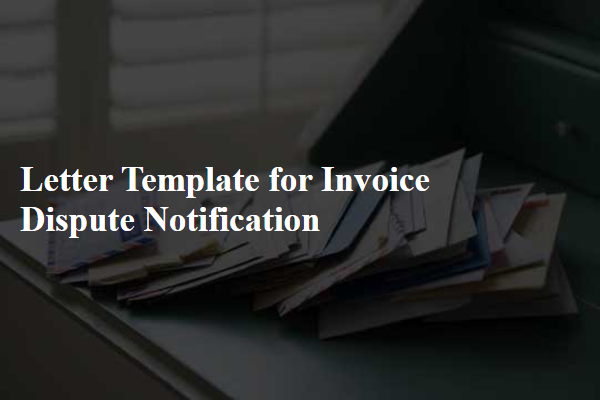
Clear Subject Line
Invoice disputes often arise due to discrepancies in billed amounts or unpaid invoices, which can impact financial reconciliation and cash flow management. Businesses, like small enterprises or large corporations, may encounter issues related to invoice specifics, such as incorrect service descriptions or missed discounts, resulting in delayed payments. A well-structured dispute notification should include clear details, such as the invoice number (e.g., #12345), billing date (e.g., April 1, 2023), and any specific line items under contention, ensuring all parties involved have a precise understanding of the issue at hand. Prompt communication is crucial in preventing misunderstandings, facilitating resolution, and maintaining positive business relationships.
Detailed Invoice Information
A detailed invoice notification regarding a dispute typically involves key elements such as invoice number, date of issue, total amount due, itemized charges, and the nature of the dispute. The invoice number, a unique identifier assigned to a billing statement, helps in tracking and referencing, while the date of issue signifies when the invoice was generated, essential for payment timelines. The total amount due encompasses all charges prior to any deductions or disputes. Itemized charges break down individual items or services, often including rates, quantities, and descriptions. The nature of the dispute may relate to billing errors, unauthorized charges, or quality issues regarding services rendered. Clear and prompt communication is crucial in resolving discrepancies efficiently.
Specific Dispute Reason
An invoice dispute notification requires a clear and structured breakdown of the specific dispute reason for effective communication. Ensure the notification includes essential details such as invoice number, date of issuance, and the specific amount disputed, typically seen in business transactions. Common dispute reasons include discrepancies in listed services or products, unexpected charges, or inaccurate billing terms, which may often arise in contractual agreements. Providing documented evidence, such as purchase orders or previous communications, strengthens the case. Timely resolution is crucial to maintain vendor relationships, typically within 30 days of detection. This process is critical for maintaining accurate financial records and ensuring compliance with accounting standards.
Supporting Documentation
A comprehensive invoice dispute notification requires detailed supporting documentation to substantiate the claim. Important documents include the original invoice (with reference number, date issued, and total amount due), any previous correspondence (emails or letters that highlight communication regarding discrepancies), contract agreements (outlining terms and conditions of service or product purchase), delivery receipts (confirming the receipt of goods or services), payment records (that detail all transactions made toward the invoice), and photographs or other evidence (if applicable, to demonstrate errors or defects in delivered items). Each piece of documentation should be clearly labeled and organized to facilitate review and ensure clarity in the dispute process.
Contact Information for Resolution
In an invoice dispute scenario, clarity and precision are essential for effective communication. Contact information includes the company's name, representative's name, email address, and phone number for reaching the accounts payable department. The representative's direct line could streamline resolution, ensuring prompt attention to the dispute. Including the company's physical address, ideally located in a recognized business district, may be necessary for mailing correspondence. Additionally, relevant documentation should accompany the communication, such as the invoice number (for tracking), date of the dispute, and specifics about the issue, like overcharges or missing services, enhancing the clarity and facilitating quicker resolution.
Letter Template For Invoice Dispute Notification Samples
Letter template of Invoice Dispute Notification for Incorrect Billing Details
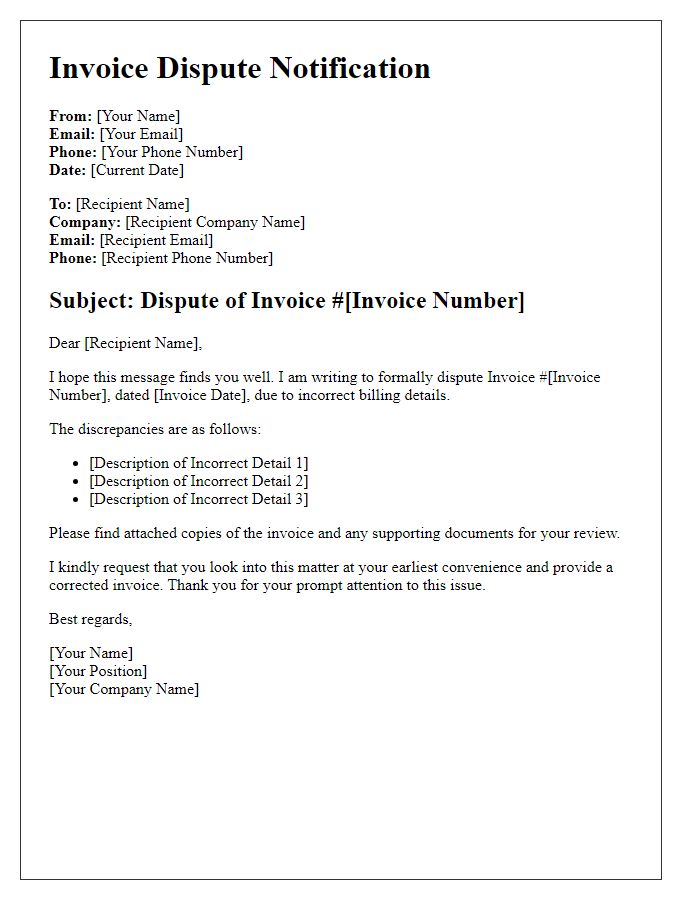
Letter template of Invoice Dispute Notification for Payment Terms Discrepancy
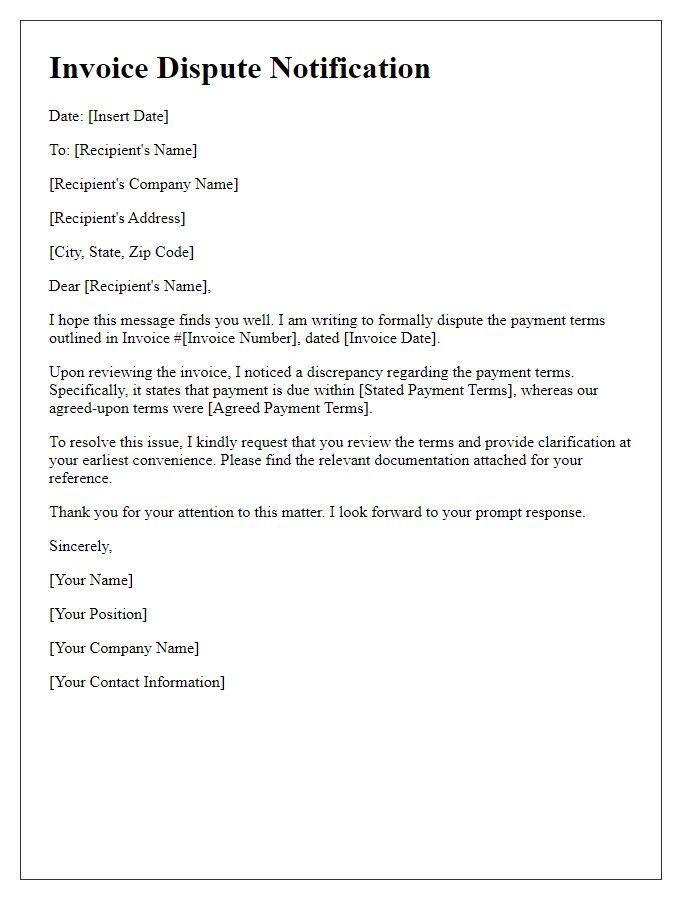
Letter template of Invoice Dispute Notification for Billing Cycle Confusion
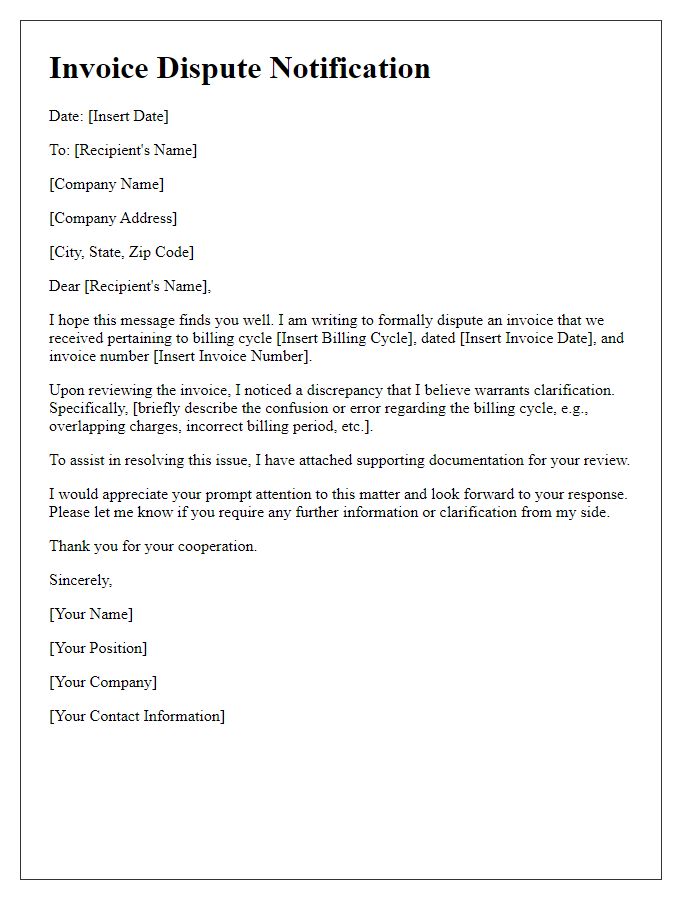
Letter template of Invoice Dispute Notification for Service Not Rendered
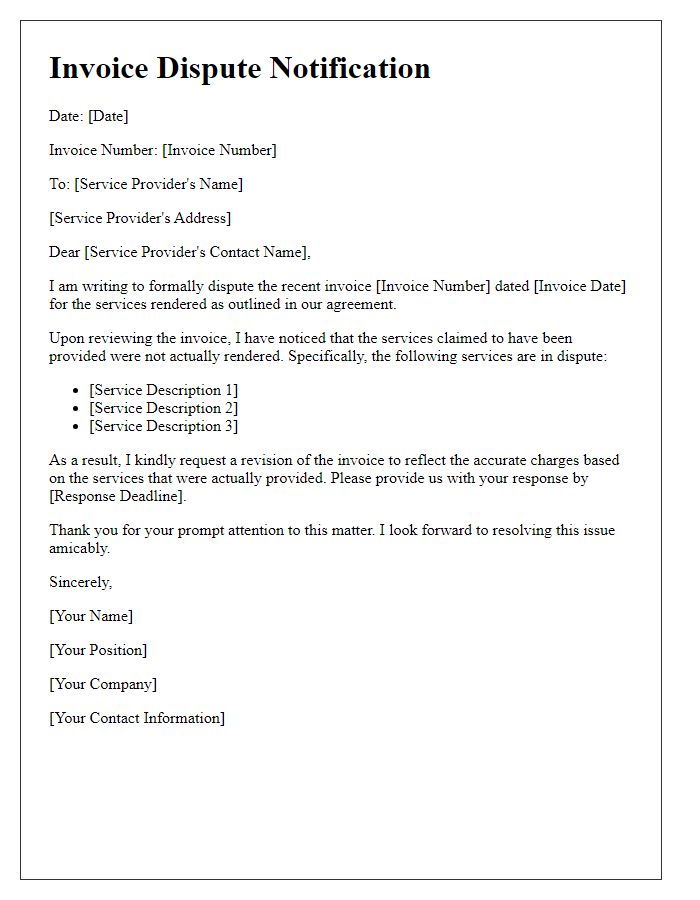

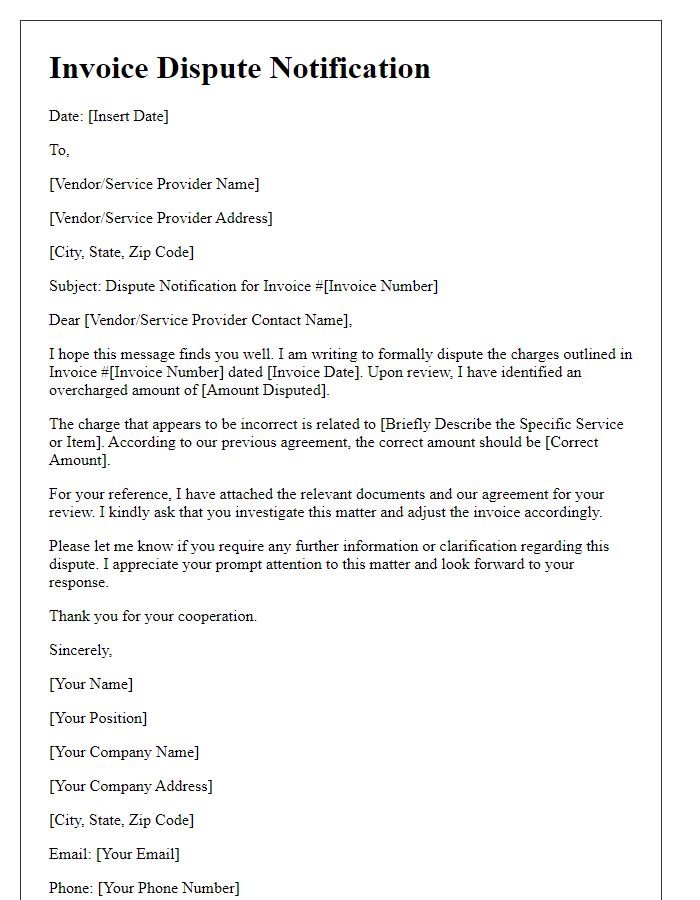
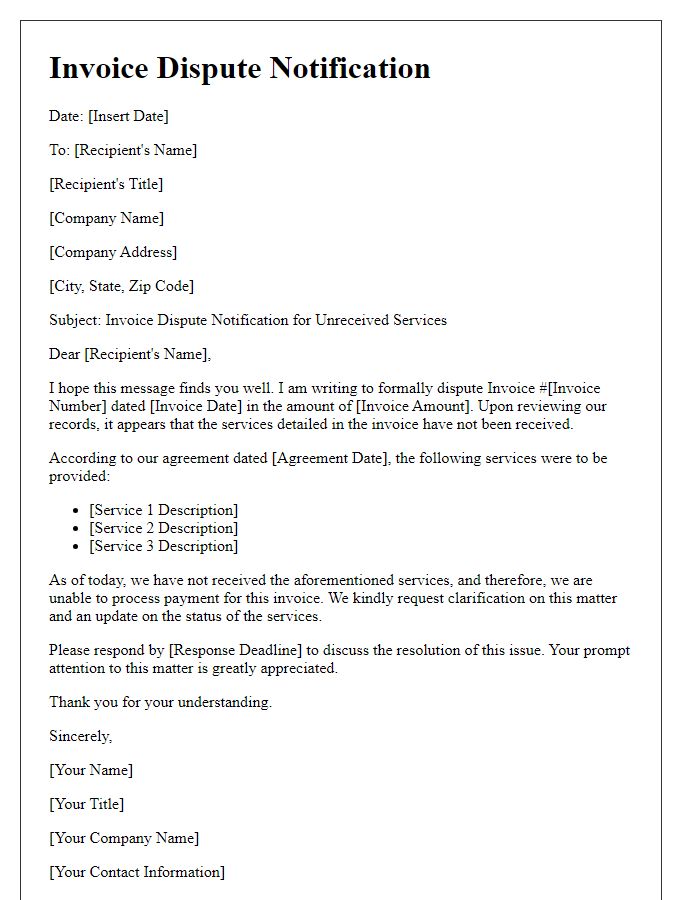
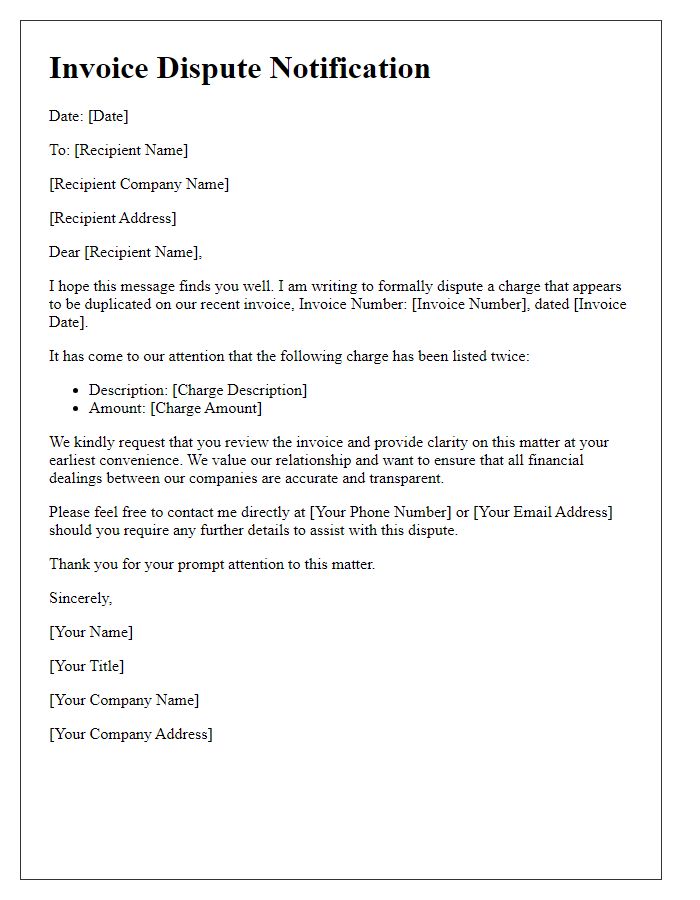
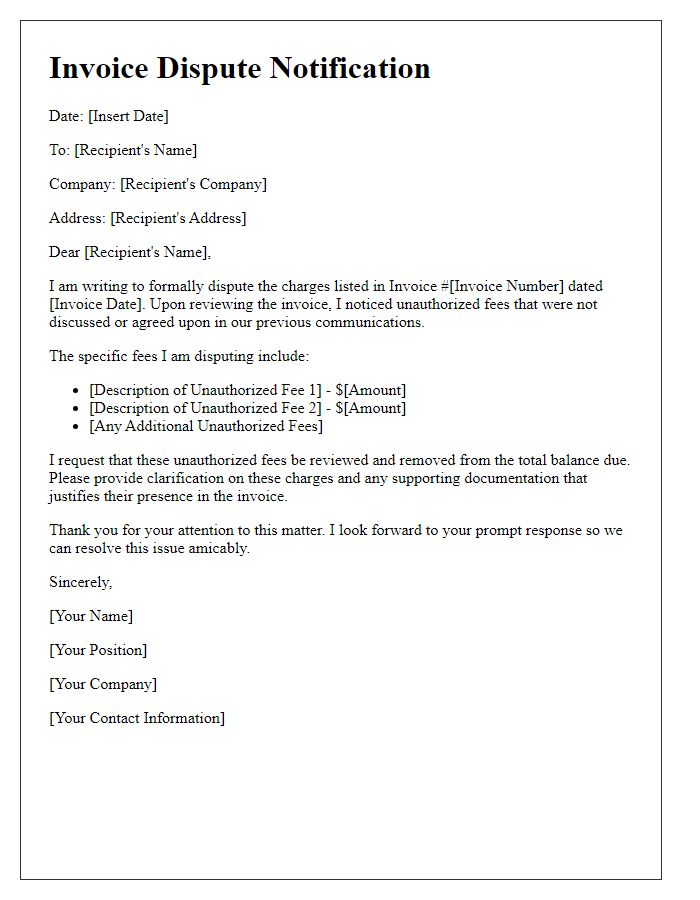
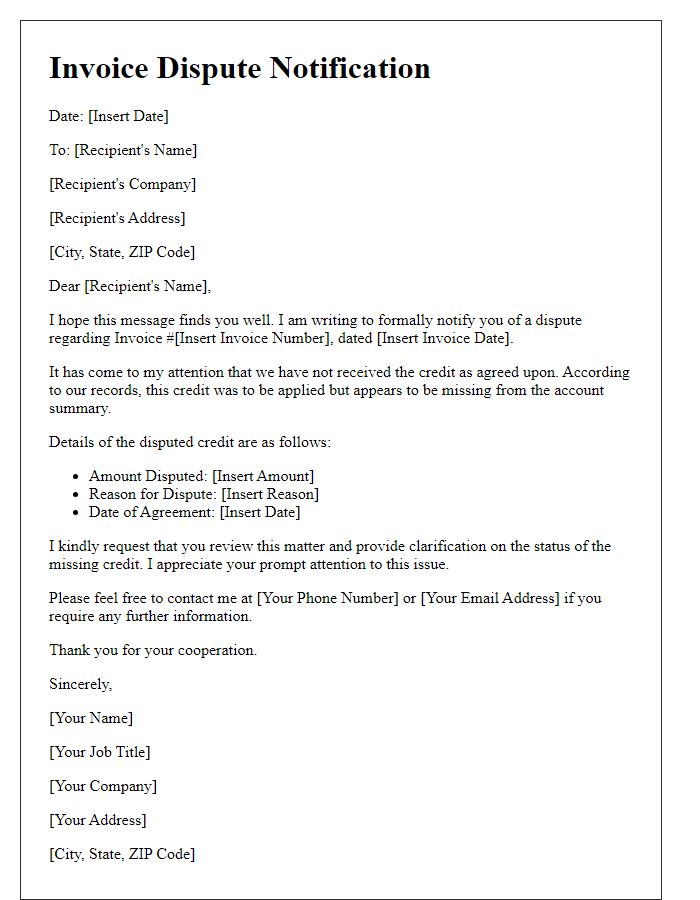
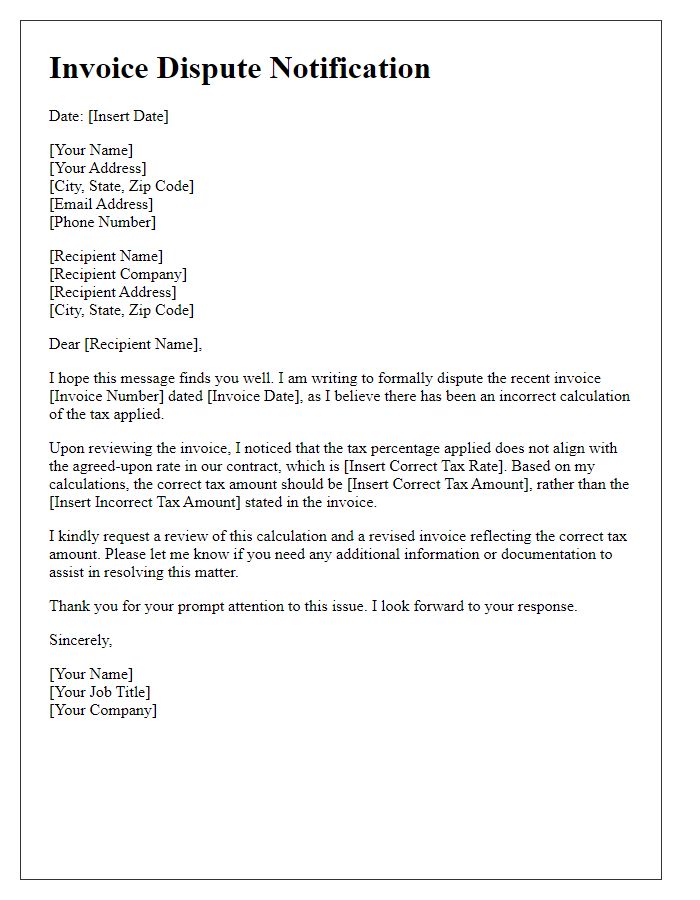

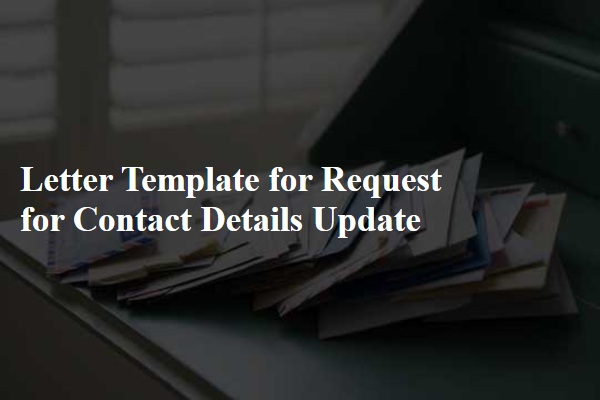
Comments